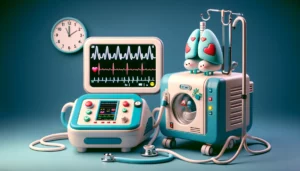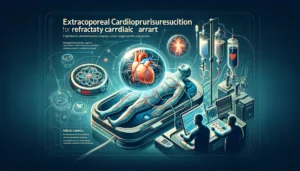
Severe Lung Dysfunction and Pulmonary Blood Flow during Extracorporeal Membrane Oxygenation
This retrospective study explores the role of echocardiography in assessing pulmonary damage and its correlation with outcomes in ECMO patients with septic shock of pulmonary origin. Among 277 patients screened, 9 had both CT and echocardiography performed. The findings suggest that CT scans were ineffective in differentiating viable lung parenchyma between survivors and non-survivors. However, echocardiography revealed significant differences in pulmonary blood flow (PBF) changes, indicating its potential as a predictive tool for pulmonary recovery in ECMO-treated patients. Specifically, non-survivors experienced a marked decline in PBF, suggesting its utility in prognostication.










